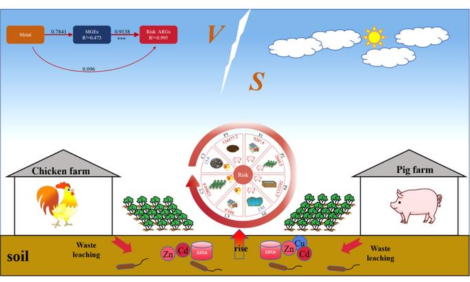



NFU AGM - CAP Greening Will not Penalise Champions
UK - The greening of the Common Agricultural Policy will not "penalise the champions", writes Chris Harris from the National Farmers Union Conference in Birmingham.The European Agriculture Commissioner Dacian Ciolos said that the aims of the reforms of the CAP will take into account measures that have already been put in place in some countries to encourage biodiversity and schemes that look towards the ecology in sustainable farming.
The change in direction from the commissioner will mean that farmers currently employing best practices to encourage biodiversity on their farms will not be penalised.
Commissioner Ciolos said: "The CAP reform aims at strengthening the competitiveness and sustainability of agriculture and maintaining its presence in all regions.
"We cannot talk about sustainability without taking our responsibility for the protection of the environment and management of natural resources."
He said that 30 per cent of direct payments received by farmers will be linked to respecting certain agricultural practices beneficial for the climate and the environment.
"We put forward three agricultural practices that are both simple and efficient, while having a clear and positive environmental impact across the European Union," he said.
The three practices include:
- crop diversification with its beneficial effects on soil quality, retention of water and organic matter, fighting erosion and the reduction in the need for inputs;
- maintaining permanent pasture, with good carbon sequestration, bioidiversity and water management;
- maintaining an ecological focus area of at least seven per cent of farmland excluding permanent grassland.
Commissioner Ciolos calmed the fears of the UK farmers that they would be penalised for their current farming methods that include most of the three practices by telling them: "We are not going to penalise the champions."
He added: "We do not want you to do less and we are not going to disregard your efforts.
"We will find appropriate ways to recognise efforts made under your agro-environmental schemes, where they genuinely contribute to greening, while not removing the incentives to do more or better in the second pillar."
He said that the CAP reforms are a long-term investment in a sustainable competitiveness, but he said that this competitiveness will only be achieved through research and innovation.
To this end, the EU budget has put forward proposals for a €4.02 billion investment in research and development between 2014 and 2020.
"Fostering innovation and a knowledge-based agriculture is at the core of the new Rural Development Policy," said Commissioner Ciolos.
"This does not just mean funding laboratory work. We need to develop the technologies that are most relevant for farmers and can be easily transferred into farming practices."
Earlier, the NFU president Peter Kendall called on the Commissioner to take four elements into consideration in the reforms of the CAP - food security through competitiveness and sustainable management of resources, a focus on research and development to unblock the rural development package and to strengthen the farmer's role in the supply chain.
Mr Kendall also raised concerns about the proposal for putting seven per cent of agricultural land to biodiversity measures and he feared that this would reduce productivity.
He called for a reduction in restrictive proposals in the reforms which he said he feared could damage competitiveness.
"I hope we can convince you to drop some of the more restrictive proposals and keep the ones that will take us in the direction of your overarching vision," Mr Kendall told the Commissioner.
The Environment Secretary Caroline Spelman also called on the agriculture commissioner to create simplicity and more freedom for farmers in the reforms of the CAP.
"To feed a hungry world, its farmers must be free to innovate and develop their commercial acumen," Mrs Spelman said.
"They need a Common Agricultural Policy that gives them that freedom as well as support."
She added: The CAP must be simplified and must be flexible. Above all it must be looking forward, not backward and it must reward farmers who are doing the same.
"Competitive farming needs open markets."
She also called on the commission to recognise the differences in farming systems in different farming regions and asked that the reforms be flexible to recognise these variations.
Commissioner Ciolos echoed the call for simplification.
"In all the measures and tools that we are proposing with the new CAP, we take into account the need to simplify the application of this policy," he said.
"Greening measures have been designed in such a way that their implementation must make rational sense."
However, he said that the reforms are also being driven by the needs and desires of the European consumers, who back the policy but want to ensure value for money.
"We have to keep our capacity to explain to taxpayers what they are paying for: concrete, measurable results of this policy," he concluded.



